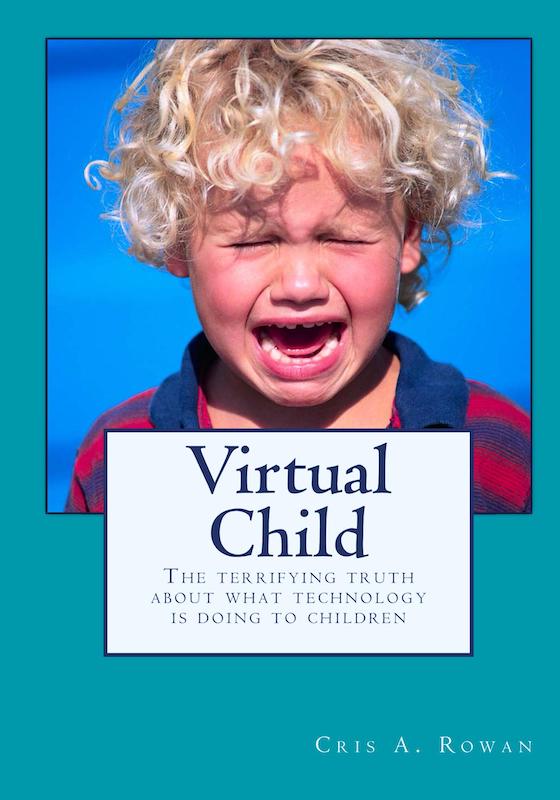Virtual Child – The terrifying truth about what technology is doing to children
It is a widely held belief by society that technologies such as television, internet,
video games and cell phones are harmless, and children with dependencies can just be
“unplugged” whenever adults want, without long term or devastating consequences. It is now estimated that up to 10% of elementary children are addicted to video games, with some as young as two years of age. Underlying these addictions is a pervasive and endemic ailment of 21st century society – the preference of a device over human beings. As children are connecting more and more to technology, they are disconnecting from humanity. Children are spending long hours immersed in dark and lonely virtual worlds, disconnecting not only from themselves, but also from their family, friends, classmates and even their pets. While the family dog is ignored and chained in the back yard, children raise virtual avatar pets on Second Life. Streets and parks are empty and quiet now, as children move deeper and deeper into their virtual worlds. This “disconnection” by children isn’t just from themselves and others. They now fear nature and being in the Great Outdoors.
The worst disconnection though, one that will change the path of humanity forever is a disconnection of children from their sense of spirit. No longer do we hear the joys of laughter as children play games outside, nor do we see the spark in children’s eyes as they learn to ride their bike or build imaginary cities in the dirt and people out of sticks and leaves. Everyone is obsessed with escaping from their present stressed existence, but to where, and why? In the history of humankind, there has never been such rapid change to systems and structures that used to govern our lives. The very fabric we used to build our home, school, work, and community systems is unravelling, leaving families and schools struggling to adapt. The intrusion of technology into home, school and work environments has hit us so fast and with such force, that there has been little time to plan how to accommodate the profound change technology has made to our lives.
The sustainability of our children’s future is now in question. In the history of humankind, our children have never been sicker than they are right now. Technology may pose the largest threat ever to the health and well being of 21st century children, yet few people are willing to do something to counteract technology’s pervasive presence in our children’s lives. Developmentally delayed, learning disabled, obese, sleep deprived, mentally ill, isolated, aggressive, illiterate, and unable to pay attention, the new millennium child may be the first generation ever to not outlive their parents. In this book by a pediatric occupational therapist Cris Rowan, the disconnection of children from self, others, nature and spirit is profiled. The current status of child physical, mental, social and academic performance is revealed, and three critical milestones for achieving optimal child growth and success are reviewed. Research regarding the impact of technology overuse on child performance indicators is presented, and issues of concern for parents, health and education professionals regarding technology overuse by children are outlined. The future sustainability of children is analyzed. A variety of novel interventions and treatment approaches are recommended for private and public sectors to begin to manage balance between activities children need for growth and success with technology use.
Virtual Child offers parents, health and education professionals, innovative tools and techniques to enhance child development and academic performance, while managing balanced use of technology. Modifications to home and school structure and environment, serve to ensure that every new millennium child will achieve a healthy, productive and sustainable future.
